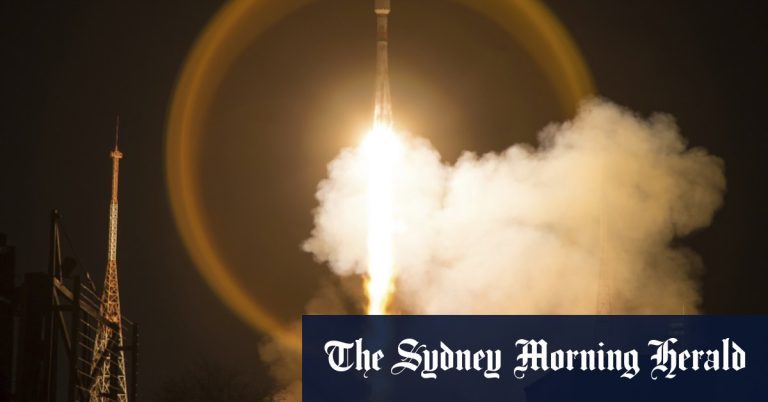]“It's like an activated solar storm,” he said of the potential impact.
download
Experts say damage from a nuclear weapon explosion in low Earth orbit could burn any satellites for hundreds of miles, and that the resulting radiation could cause cumulative damage to satellites passing through the affected area for months. Electronics in spacecraft are also vulnerable to failure as a result of radiation resulting from a nuclear explosion.
Whether Russia deploys a nuclear weapon or not, what is clear is that the United States and its main adversaries, Russia and China, have developed increasingly advanced programs to wage conflict against each other's assets in orbit, enhancing their capabilities to destroy satellites and disrupt communications networks. .
Falco said the Defense Department and others have been looking in recent years into whether China or Russia is developing capabilities or testing high-altitude nuclear explosions, which could then generate powerful electromagnetic pulses at high altitudes.
Moscow and Beijing have also come to the assessment that the United States relies too heavily on its own communications and spy satellites, which does not give it a tactical advantage.
download
“China and Russia view the United States as overly reliant on space to achieve military and information superiority,” the US Space Force said in a report titled “Competition in Space” released in January. “Seeking asymmetric advantages in future conflict, both countries are designing, testing, and demonstrating counter-space weapons to prevent, disable, or destroy satellites and space services.”
The United States is determined not to be left behind. Although there is no indication that the United States is placing nuclear weapons in space — which would be a violation of the 1967 Outer Space Treaty — it is widely viewed as the most advanced in the world when it comes to space.
In September, the United States conducted the first launch of a new constellation of satellites known as Silent Parker designed to track Chinese or Russian spacecraft that could potentially disable or damage American systems orbiting them.
The Silent Barker program is a response to efforts by China and Russia to develop systems capable of launching into orbit and ejecting other satellites. In its annual threat assessment this year, the US Office of the Director of National Intelligence said China possesses weapons intended to target satellites of the United States and its allies, and that “counter-space operations will be an integral part of operations conducted by the People’s Liberation Army.”
download
While much of it is in the future, some is already happening. The government of Russian President Vladimir Putin has raised the possibility of attacking commercial satellite systems that aid its enemies. The United States and its allies have already accused Russia of being behind a sweeping cyberattack on Viasat satellite modems across Europe that affected the Ukrainian military's ability to communicate on the eve of Russia's invasion of Ukraine in February 2022.
Experts say that Russia and China cannot detonate a nuclear explosion in space without affecting their systems. But they may see that the United States has too much to lose.
“If the conflict is close to China or Russia and we are operating over a longer range, space may be more important to us than it may be to them,” said Eli Newwood, an aerospace engineer at the government-funded research group MITRE. “There are a lot of things that are not solid.”


